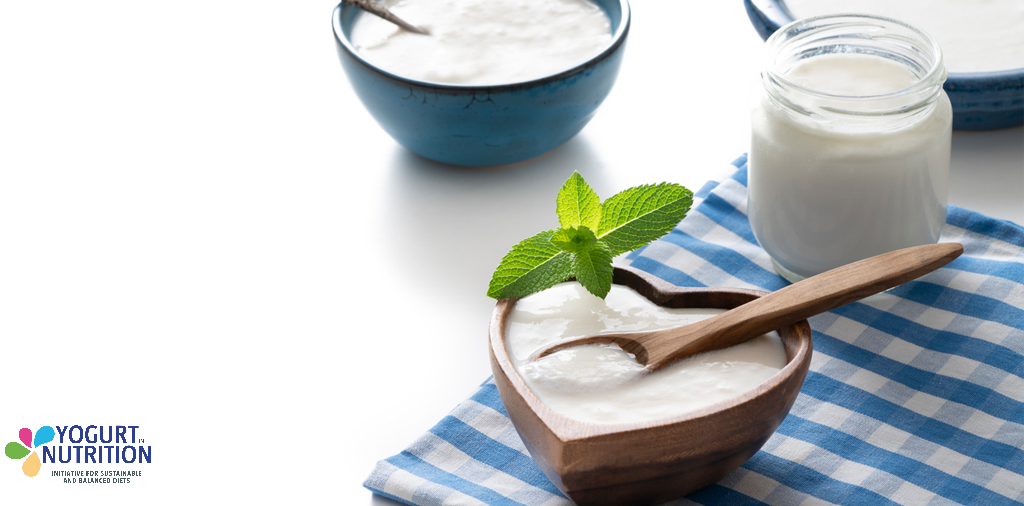If you’re a yogurt-lover, research says that you may have chances of living to a ripe old age. Latest research has found that eating a pot of yogurt every day can be linked to a reduced risk of dying from any cause, and in particular from heart and vascular diseases.
The good news follows previous findings that regularly eating yogurt is associated with lower risks of raised blood pressure, type 2 diabetes, and certain cancers. In this latest research, scientists looked at the possible relationship between eating yogurt and the risk of death from all causes, as well as from cardiovascular disease (CVD) and cancer – which together cause more than half of deaths worldwide.
For this meta-analysis and review, the researchers reviewed data from 17 studies that altogether included nearly 900,000 people. In these studies, participants from regions including the USA, Europe and Japan were followed for 6 to 32 years (1).
A daily serving of yogurt
The research revealed that, when comparing the highest level of yogurt consumption with the lowest, the risk of all-cause death was reduced by 7%.
What’s more, the more yogurt you eat, the better, the study showed. Each additional serving of yogurt consumption was inversely associated with a 7% lower risk of all-cause mortality, with a non-linear progression: there was no further reduction in risk above 0,5 to 1 serving/day.
Eating yogurt daily may protect against cardiovascular, but not cancer
Similarly, the researchers found that when comparing the highest level of yogurt consumption with the lowest, the risk of death from CVD was reduced by 11%. Each additional daily serving of yogurt was associated with a 14% lower risk of death from CVD.
However, the researchers did not find a significant association between eating yogurt and risk of death from cancer. This might be because any such association depends on the type of cancer and the characteristics of patients, the scientists suggest.
How can a daily dose of yogurt help people to live long and healthily?
Eating yogurt provides us with a host of vitamins, minerals, and proteins. In this way, yogurt can contribute to a healthy balanced diet, which plays an important role in helping to protect against chronic conditions such as cancer and CVD.
But yogurt may also have a secret weapon that would help explain the association between yogurt consumption and a reduced risk of dying. Scientists think the lactic acid bacteria in yogurt can help to increase the diversity and function of the gut’s microbiota, which contributes to human health in several ways: (2)
- Yogurt carries ‘good’ bacteria into the gut, promoting immune functions through which it can improve human health (2)
- Regular yogurt consumption has been associated with lower levels of cholesterol, and this may help protect the heart (3)
- Eating yogurt regularly has also been associated with reduced weight gain and thinner waist circumference, potentially though improved insulin sensitivity (4)
- Findings from clinical trials indicate that eating yogurt may be effective in reducing chronic inflammation (5)
‘Taken together, these findings support the notion that yogurt consumption may be effective in reducing the risk of all-cause and CVD mortality.’ – Tutunchi H, et al. 2022
Find out more: read the original article.
Additional references:
- (2) Lisko DJ, et al. Effects of dietary yogurt on the healthy human gastrointestinal (GI) microbiome. Microorganisms. 2017;5(1):6. doi: 10.3390/microorganisms5010006.
- (3) Agerholm-Larsen L, et al. The effect of a probiotic milk product on plasma cholesterol: a meta-analysis of short-term intervention studies. Eur J Clin Nutr. 2000;54(11):856-60. doi: 10.1038/sj.ejcn.1601104.
- (4) Sayon-Orea C, et al. Associations between yogurt consumption and weight gain and risk of obesity and metabolic syndrome: a systematic review. Adv Nutr. 2017;8(1):146S-154S. doi: 10.3945/an.115.011536.
- (5) Pei R, et al. Low-fat yogurt consumption reduces biomarkers of chronic inflammation and inhibits markers of endotoxin exposure in healthy premenopausal women: a randomised controlled trial. Br J Nutr. 2017;118(12):1043-1051. doi: 10.1017/S0007114517003038.



